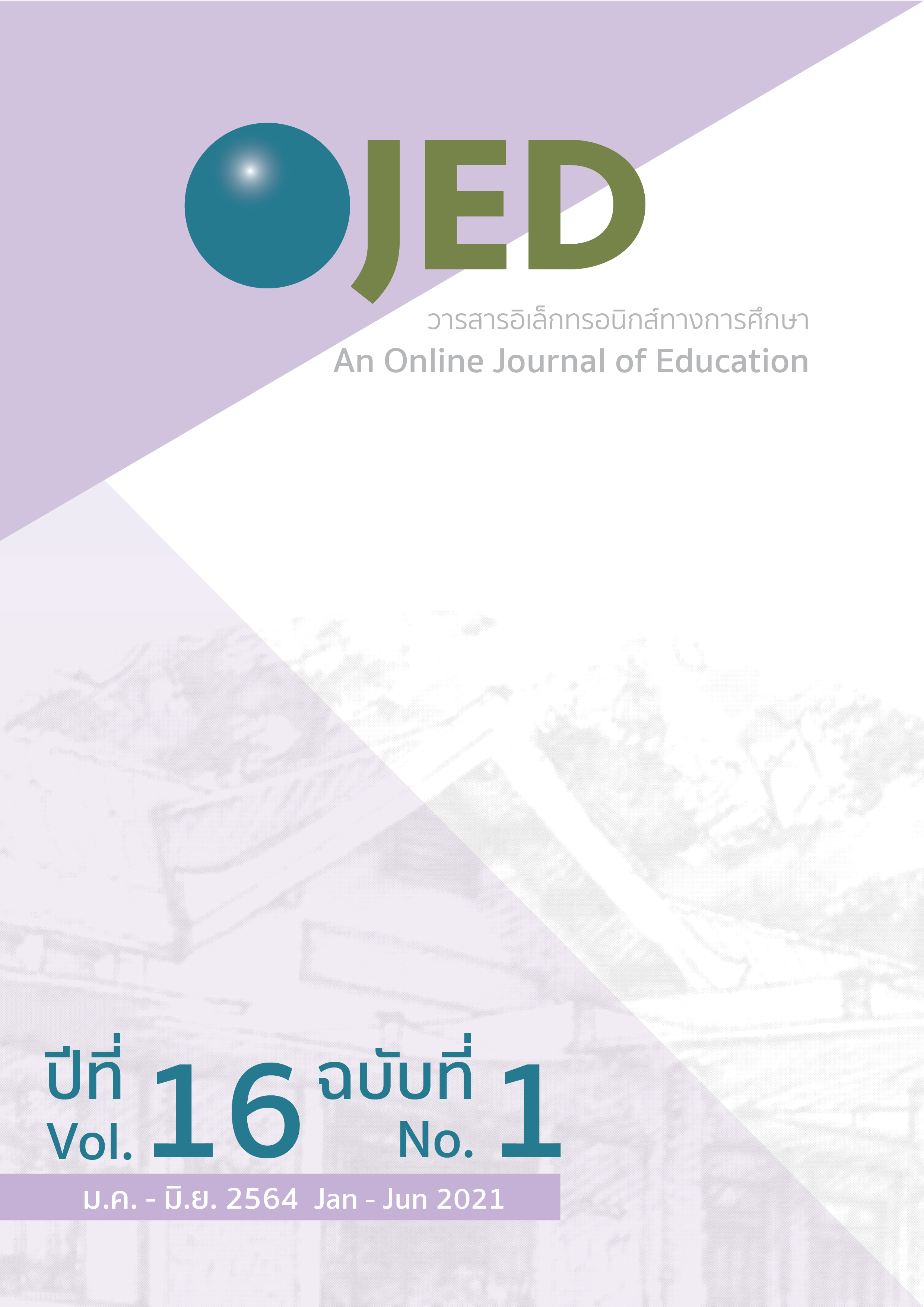A Development of Academic Dishonesty Assessment Tool of Graduate Students Using Experimental Survey
DOI:
https://doi.org/10.14456/ojed.2021.5Keywords:
academic dishonesty, experimental surveyAbstract
This experimental survey combines experimental and survey research. The use of vignettes as intervention in the questionnaire could assist respondents to answer the questions in a realistic manner and reduce limits due to social norms. This principle was applied to develop a tool to assess graduate students’ intention to commit academic dishonesty using an experimental survey. The research instrument was a vignette questionnaire. The questionnaire consisted of four levels. The research sample included 30 graduate students of education. Agreement and reliability analyses was conducted using computer software. The results indicate that the degree of agreement of each item in the instrument ranged from 0-1.00. The test-retest reliability was .83 significant at .05.
References
Auspurg, K., & Hinz, T. (2015). Factorial survey experiments. SAGE.
Choo, F., & Tan, K. (2008). The effect of fraud triangle factors on students’ cheating behaviors. Advances in Accounting Education, 9, 205-220.
Farnese, M. L., Tramontano, C., Fida, R., & Paciello, M. (2011). Cheating behaviors in academic context: Does academic moral disengagement matter. Procedia-Social and Behavioral Sciences, 29, 356-365.
Jasso, G., & Opp, K.-D. (1997). Probing the character of norms: A factorial survey analysis of the norms of political action. American Sociological Review, 62(6), 947-964.
Miller, A., Shoptaugh, C., & Wooldridge, J. (2011). Reasons not to cheat, academic-integrity responsibility, and frequency of cheating. The Journal of Experimental Education, 79(2), 169-184.
O'Rourke, J., Barnes, J., Deaton, A., Fulks, K., Ryan, K., & Rettinger, D. A. (2010). Imitation is the sincerest form of cheating: The influence of direct knowledge and attitudes on academic dishonesty. Ethics & Behavior, 20(1), 47-64.
Schlueter, E., & Schmidt, P. (2010). Special issue: Survey experiments. Methodology: European Journal of Research Methods for the Behavioral and Social Sciences, 6(3), 93-95.
Staats, S., Hupp, J. M., Wallace, H., & Gresley, J. (2009). Heroes don't cheat: An examination of academic dishonesty and students' views on why professors don't report cheating. Ethics & Behavior, 19(3), 171-183.
Sullivan, G. M., & Artino Jr, A. R. (2013). Analyzing and interpreting data from Likert-type scales. Journal of Graduate Medical Education, 5(4), 541-542.
Tamami, L. L., Rahmawati, I. N., Dewingga, Y., Permana, I., & Ramadhani, G. M. (2015). Psycholax training to reduce cheating behaviour among high school students. International Journal of Applied Psychology, 5(5), 115-118.
Downloads
Published
How to Cite
Issue
Section
License

This work is licensed under a Creative Commons Attribution-NonCommercial-NoDerivatives 4.0 International License.




